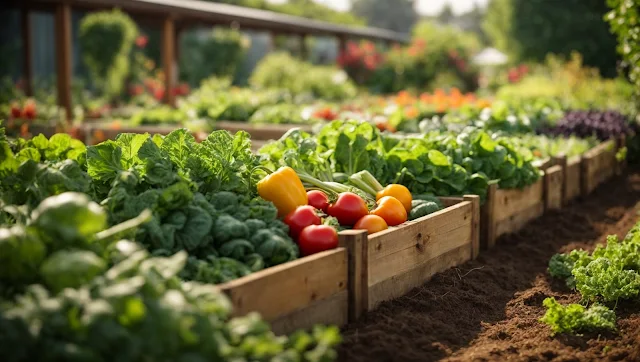Watering your beginner-friendly vegetable garden properly is crucial for their growth and yield. However, determining the correct watering frequency can be challenging. This article aims to provide comprehensive guidance on maintaining optimal soil moisture for different types of vegetables.
Importance of Proper Watering for Healthy Plant Growth
Proper watering is fundamental for the health and vitality of your vegetable plants. Understanding the factors influencing watering needs and identifying signs of both underwatering and overwatering is essential for nurturing a flourishing garden.
Determining Watering Schedule for Different Vegetables
Leafy Greens and Herbs
Leafy greens and herbs such as lettuce, spinach, and basil typically require consistent moisture. However, they are susceptible to root rot if overwatered. Balancing moisture retention without saturating the soil is key.
Root Vegetables
Root vegetables like carrots and radishes necessitate sufficient but not excessive watering. Irregular watering might lead to stunted growth or cracking in the produce.
Fruit-Bearing Vegetables
Fruit-bearing vegetables such as tomatoes and peppers require consistent moisture, particularly during flowering and fruiting stages. Dry spells could affect fruit development.
Best Practices for Watering Beginner-Friendly Vegetables
Adopting best watering practices involves considering factors like timing, techniques, and water retention strategies. Watering in the morning allows plants to absorb moisture effectively, reducing the risk of diseases.
Factors Impacting Water Absorption in Different Soil Types
Soil composition affects water absorption. Sandy soil drains quickly, while clay soil retains moisture for longer periods. Understanding your soil type helps adjust watering schedules accordingly.
Adapting Watering Practices According to Seasonal Changes
Seasonal variations significantly impact watering needs. Summer necessitates more frequent watering due to higher evaporation rates, while winter calls for adjustments to prevent waterlogging.
Ensuring Proper Drainage and Avoiding Water-Related Issues
Good drainage is crucial to prevent waterlogged soil, which can suffocate roots. Implementing proper drainage methods in containers and gardens mitigates such risks.
Understanding Plant Needs Beyond Water
Apart from water, considering sunlight exposure and nutrient requirements is vital. Ensuring the right balance of these factors contributes to overall plant health.
Conclusion
Maintaining the ideal watering schedule for beginner-friendly vegetables involves a delicate balance. By understanding specific plant needs, soil characteristics, and seasonal adjustments, gardeners can ensure healthy and thriving vegetable growth.
FAQs:
How do I know if I am overwatering my vegetables? Signs include wilting despite adequate water, yellowing leaves, and waterlogged soil texture.
Can I use automated watering systems for vegetable gardens? Yes, automated systems like drip irrigation can be efficient if appropriately configured.
Should I water my vegetable garden every day? Frequency depends on factors like weather, soil type, and plant requirements. It's better to check soil moisture before watering.
What is the best time of day to water vegetables? Morning watering allows plants to absorb moisture before the heat of the day, reducing the risk of diseases.
Can mulching help with water retention in vegetable gardens? Yes, mulching helps retain moisture, regulate soil temperature, and suppress weed growth.

